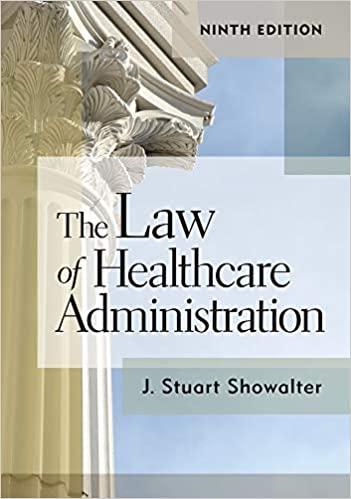Question
What does this case mean or define? In Gold Finger's Casino, Inc. v. State Department of Taxes ,123 State 2d 456 (2000), theplaintiffs, Gold Finger's,
What does this case mean or define?
InGold Finger's Casino, Inc. v. State Department of Taxes,123 State 2d 456 (2000), theplaintiffs, Gold Finger's, paid sales taxes under a newly enacted Casino law that was, in their accountant's opinion, vague and conflicting.Gold Finger's general manager contacted the Department of Taxes where an employee assured them that no taxes were due for that year. Two years later, the Department claimed that Gold Finger's owed $30,000.00 in back taxes and penalties for the year in question.The trial court and State Court of Appeal found that although the taxes were due, thestatewas precluded from collecting them because of the doctrines ofdetrimentalrelianceand equitable estoppel. On further appeal, State Supreme Court disagreed finding that "detrimentresulting fromreliancesimply has not been proved."
In consideringGold Finger's, the Supreme Court noted four factors required to invoke detrimental reliance against a governmental agency. The additional factors include: "(1) unequivocal advice from an unusually authoritative source, (2) reasonablerelianceon that advice by an individual, (3) extreme harm resulting from thatreliance, and (4) gross injustice to the individual."Here,Gold Finger'shad to pay the tax because the same tax was enforced against numerous other casinos, who also made a lot of money, and thatGold Finger'sfailure to pay taxes was based on a misrepresentation by a rather high ranking state official who thought she had the authority to act accordingly.
Step by Step Solution
There are 3 Steps involved in it
Step: 1

Get Instant Access to Expert-Tailored Solutions
See step-by-step solutions with expert insights and AI powered tools for academic success
Step: 2

Step: 3

Ace Your Homework with AI
Get the answers you need in no time with our AI-driven, step-by-step assistance
Get Started


